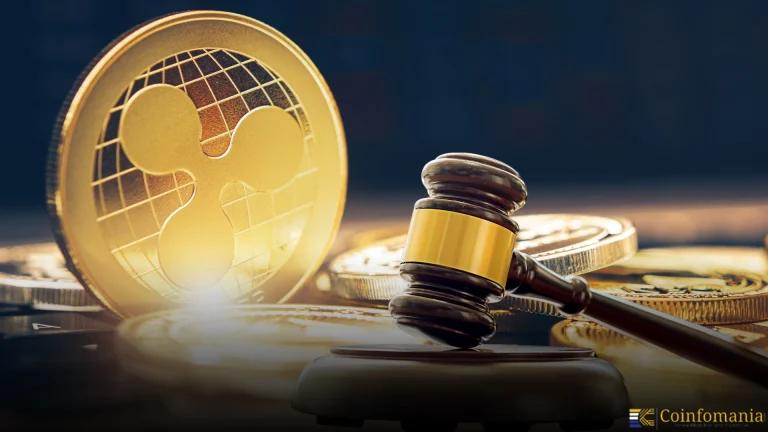Cryptocurrency Regulation in Portugal
Portugal used to be a crypto-tax haven but this has changed. Following the example of the US, the country has combined stringent anti-money-laundering (AML) registration with a 28% short-term gains tax, but continues to allow long-term holders to avoid the tax. Notice 3/2021 includes the registration and supervision of virtual-asset service providers (VASPs) by the […]

Portugal used to be a crypto-tax haven but this has changed. Following the example of the US, the country has combined stringent anti-money-laundering (AML) registration with a 28% short-term gains tax, but continues to allow long-term holders to avoid the tax. Notice 3/2021 includes the registration and supervision of virtual-asset service providers (VASPs) by the Bank of Portugal, and the Markets in Crypto-Assets Regulation (MiCAR) adopted by the EU now provides an entire rule-book to issuers and platforms. The outcome is the framework that attempts to cover the protection of users without strangling the industry.
Historical Context
- 2019 – The tax authority said casual buying or selling of crypto was VAT-free and capital-gains-free, sparking an influx of traders.
- Apr 2020 – A “Digital Transition Action Plan” created “Free Zones” where start-ups could test blockchain products under lighter rules.
- Apr 2021 – Notice 3/2021 launched Portugal’s first compulsory VASP register.
- Jan 2023 – The state budget introduced a 28% tax on coins held fewer than 365 days.
- 30 Jun 2024 / 30 Dec 2024 – MiCAR titles on stablecoins and the wider market began to apply EU-wide, including in Portugal.
Regulatory Framework
Portugal regulates crypto on two main pillars.
AML supervision. All exchanges, brokers, custodians and transfer services that operate “in Portuguese territory” must register with the Bank of Portugal before launch, appoint an AML officer and follow know-your-customer rules. The bank can fine or de-register firms that fall short.
MiCAR compliance. From 2024–25 issuers of asset-referenced tokens, e-money tokens and utility tokens must publish white papers, meet capital rules and file with either the bank or the securities supervisor (CMVM), depending on the token type. Cross-border EU passporting is possible once a licence is granted.
Portugal Crypto Policies
- Legal status. Crypto is property, not legal tender; payments in Bitcoin are private barter deals, not official currency transactions.
- Trading & custody. Residents should use a registered VASP. Reverse-solicitation by unregistered foreign exchanges risks enforcement.
- Taxation. Gains on disposals within 365 days are taxed at 28 %. Gains after that period are normally exempt unless the coin is security-like or held via a black-list jurisdiction. Staking yield and airdrops fall under the same 28 % flat rate.
- Mining. Hobby mining profits are taxed like other passive income; industrial farms count as business income and pay progressive or corporate rates.
- ICO / token sales. Each offering is assessed case-by-case. If the token grants profit or voting rights it is likely a security and must comply with the Portuguese Securities Code in addition to MiCAR.
Crypto Innovation Approach
Portugal runs Tecnológicas Livres (“Tech Free Zones”) that lets firms test DLT solutions with regulators on-site. The joint regulator hub Portugal FinLab gives start-ups early feedback on licensing paths, while the national blockchain strategy funds pilots in land registry, intellectual-property stamping and digital IDs.
Challenges and Issues of Note
- Short-term tax wiped out the country’s “zero-tax” mystique, pushing some day-traders elsewhere.
- Only thirteen VASPs are fully registered; smaller firms cite high compliance costs and slow bank onboarding.
- A clear framework for NFTs and decentralised-finance (DeFi) lending is still missing, causing legal uncertainty.
- Enforcement of incoming “travel-rule” data-sharing will test VASPs’ tech budgets.
Important Regulatory Trends and Prospects
- Travel-rule rollout. From 30 December 2024 all crypto transfers must carry sender-and-receiver data, aligning with EU Regulation 2023/1113.
- MiCAR level-2 rules. Technical standards on capital, custody and sustainability disclosures will arrive through 2025, tightening licence conditions.
- Digital-euro prep. The Bank of Portugal participates in ECB pilots, but no national CBDC is planned.
- Real-estate crypto deals. Notaries are drafting rules for property purchases paid partly in crypto, which could widen mainstream adoption.
Conclusion
Portugal now blends sandbox freedom with EU-grade oversight. The 28% short-term tax may deter speculative traders, yet long-term exemptions, clear VASP registration and MiCAR passporting keep the country attractive for builders aiming at the wider European market. Success will depend on how smoothly regulators process MiCAR licences and how effectively firms adapt to the new AML data rules.
FAQs
1. Is cryptocurrency ownership legal in Portugal?
Yes. Anyone can buy, sell or hold crypto; you simply have to use a duly registered service provider if you trade from Portugal.
2. Do I pay tax every time I sell my coins?
Only if you held them less than 365 days; then gains are taxed at 28 %. Keep them longer and most sales are tax-free unless the token counts as a security or the counter-party sits in a black-list jurisdiction.
3. Are crypto-to-crypto swaps taxable?
Yes. Swapping ETH for SOL is treated as disposing of ETH; any gain on ETH less than a year old is taxed immediately.
4. How do I know whether an exchange is legal in Portugal?
Check the Bank of Portugal’s public register of VASPs. If the platform is not listed, it must not actively serve Portuguese clients.
5. Can I still mine Bitcoin at home?
You can. Hobby-level rewards are taxed as Category E income at 28%. Large commercial rigs are treated as a business and follow normal income or corporate-tax rules.
6. What happens to staking rewards?
The euro value of each reward on the day you receive it is taxed at 28%. If you then hold those tokens for a year before selling, any extra gain may be tax-free.
7. Will Portugal recognise a MiCAR licence from another EU country?
Yes. Once the foreign supervisor notifies the Bank of Portugal, the provider can “passport” services, though it must still obey local conduct rules.
8. Does Portugal regulate stablecoins separately?
Yes. Asset-referenced and e-money tokens have been covered since 30 June 2024 and must meet capital, reserve and disclosure obligations before public issue.
9. Are NFTs taxed the same way as Bitcoin?
Most NFTs are excluded from MiCAR and, for now, follow general property rules; any profit on a resale inside one year is likely taxed at 28%.
10. Will using crypto to buy a house trigger extra taxes?
The property transfer tax is still calculated in euros on the home’s market price; paying the seller with crypto counts as a disposal, so any short-term gain on those coins is taxed at 28%.
Follow us on Google News
Get the latest crypto insights and updates.
Related Posts

Ripple Highlights Custody as Key to $18.9T Tokenized Assets by 2033
Shweta Chakrawarty
Author

Hong Kong SFC Issues New Custody Rules for Crypto Platforms
Shweta Chakrawarty
Author

South Korea and Vietnam eye $150B trade despite Trump tariff
Shweta Chakrawarty
Author